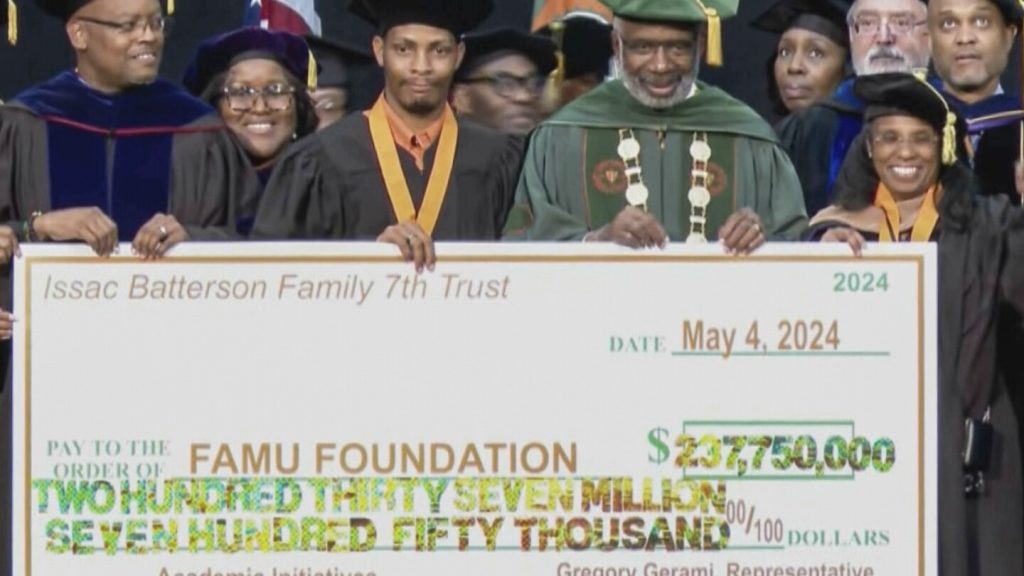Florida A&M University was poised to receive the largest private gift ever for a historically Black college or university: $237 million from a 30-year-old entrepreneur, Gregory Gerami. Gerami, who claimed to be Texas’ youngest African American industrial hemp producer, promised the donation to FAMU last fall. The university officials, including President Larry Robinson and Athletic Director Tiffani-Dawn Sykes, began meeting with him virtually to discuss the donation. Gerami wanted to surpass a $100 million donation to Spelman College, which was then considered the largest donation to any HBCU. The donation was supposed to come through 14 million shares in his hemp company, Batterson Farms Corp, although the company’s value remains uncertain.
Questions surrounding the legitimacy of Gerami’s donation and his company have arisen, casting doubt on the validity of the promised gift. Various inconsistencies in Batterson Farms Corp’s operations, including a sparse website and broken links to purchase products, have raised concerns. Kimberly Sue Abbott, a founding board member of the company, expressed skepticism about Gerami’s claims and the actual value of the shares. Gerami defended his company’s operations as an intermediary between farmers and consumers but refused to provide concrete details about its contracts, revenue, and staff. The lack of transparency and due diligence in the donation process has led to public backlash and uncertainty about the future of the donation.
Florida A&M University officials have not disclosed much about their vetting process of Gerami or their knowledge of his background. Shawnta Friday-Stroud, the former vice president for university advancement, signed a nondisclosure agreement on behalf of the foundation board at Gerami’s request. Despite not completing an independent appraisal of the stock’s worth, FAMU announced the donation, which raised concerns about its legitimacy. University fundraisers and experts have raised questions about the lack of proper assessment before publicizing the donation. Gerami’s donations to other small universities have also come under scrutiny, with concerns about his intentions and the actual value of the promised funds.
The fallout at FAMU has been significant, with University officials terminating their engagement with Gerami, and Friday-Stroud resigning from her position. A third-party investigation into the donation process has been approved, and state officials have joined in the inquiry. The embarrassing situation has raised concerns among HBCU supporters about the negative impact on fundraising efforts for historically Black colleges and universities. Despite the setback, HBCUs have seen increased corporate interest in recent years, though public funding disparities still persist. The hope is that the negative attention surrounding Gerami’s failed donation will not hinder the progress of fundraising efforts for HBCUs.
Gregory Gerami remains steadfast in his belief that the donation will eventually come through once the independent valuation of the shares is completed. He maintains that the value of the donation was his own estimate and expects it to be confirmed by the valuation. Gerami states that he had considered numerous colleges and universities for donations in recent years as part of a strategy to establish research partnerships for his company. The ongoing scrutiny and uncertainty surrounding Gerami’s promised gift have left many questioning the authenticity of his intentions and the impact on FAMU and other institutions. The controversy highlights the importance of thorough due diligence and transparency in large charitable donations to ensure the credibility and sustainability of such gifts.


